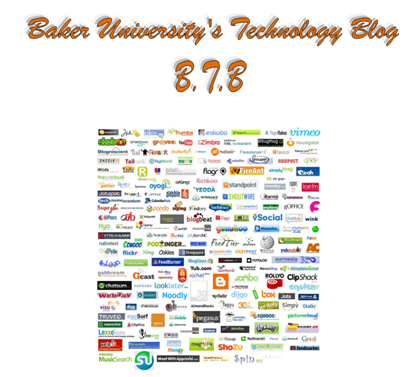I shared a series of emails with an instructor the other day that made me take pause and realize something worth sharing. Our online content is dependent upon the instructor's ability to engage with students in a meaningful manner and compel students to share and collaborate with one another. How do we accomplish this, currently? More often than not a common tool or resource used within Moodle (Baker's LMS) is the forum (or discussion board, depending on your LMS' lingo). Have our students become numb to the forum? This instructor and I brainstormed ways to incorporate alternative platforms, as well as forums, that motivate (and in some cases force...but this can't be the main basis for discussion) students to share original thought and engage one another. The instructor's initial comment was that students were just going through the motions. Students waited for one person to post, read what they wrote and then summarized that person's view as their own. The result was a stale, thoughtless strand of forum posts that didn't contribute meaningful insight to that week's discussion or topic. How can this be avoided...can it? I contend that it can be avoided but there is a layered process.
First step, as the instructor what do you want to accomplish with the forums...what purpose will they serve? Do you want free/open discussions, will students answer a specific question, will students originate the content, are students graded, will the forum posts count toward formal writing standards, is the forum discussion based upon media, etc...? Outlining which of these is a factor is critical because it sets the tone for you as the course designer on how you will write your syllabus and incorporate specific language to achieve your goal. What course or weekly objective is the forum serving? I realize that we (when I say we I mean administrators at Baker in SPGS) ask for some form of discussion each week from our online instructors in their course design. This stems from the notion that you wouldn't hold class on-ground without having discussions so why is it acceptable online (although there are always those mitigating circumstances and exceptions)? Second thought is the syllabus. How you word and construct the syllabus is vital. Do you have a standard paragraph that applies to all forums? Do you have a rubric? Rubrics are invaluable because it provides an outline of expectations that you can construct your feedback around...and yes you want to give feedback on the forums. Forums are a place for you as the instructor to....well, instruct. Are all forums structured the same? There is a value in having consistency with how you design an accelerated course, but you can diversify the content. One week you originate the question, the next week students lead the forum, the third week is based off of audio or video, etc... I have had great success when I structure course discussions as a student lead adventure. I assign multiple students as the lead for a given week and by Thursday of their week they are to write a critical analysis of a topic (which I assign), that pertains to the course, of at least 250 words. Then they are responsible for monitoring the forum and replying to anyone that comments to their post; the other students not leading the forum are responsible for reading and responding to at least two of their peers' posts. Points are earned as a facilitator and a responder, with everyone getting at least one turn as a facilitator. Also, alter how the forums are setup. In Moodle you can have a Q&A forum where students have to respond to a question before they read what others have posted. There is a simple discussion option that places all the posts on a single page, kind of like a wiki page. Or you can have each student post one topic before they can reply to what others have posted. The last consideration is the modality for the discussion. Moodle provides a blog, a wiki, and online chat option in addition to forums. Each of these can be incorporated for the purpose of fostering student collaboration and in-class discussions, as well as break up the routine students endure because the majority of discussions occur within a forum right now. Moreover, forums, wikis, and blogs allow for you to add video, audio, web links, and files to them. Use these options to create an interactive discussion to motivate interest as well.

No comments:
Post a Comment